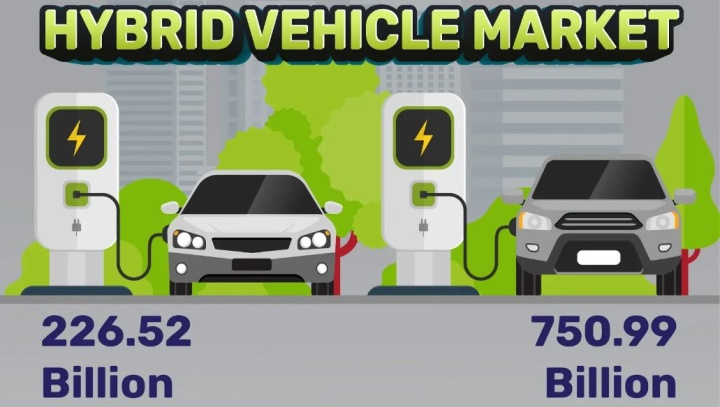According to report published by Kings Research, Hybrid Vehicle Market Size is poised for significant expansion over the coming decade. According to a comprehensive analysis by Kings Research, the market, valued at $226.52 billion in 2023, is projected to surge to an impressive $750.99 billion by 2031, representing a compound annual growth rate (CAGR) of 16.19% during the forecast period from 2024 to 2031.
Regional Insights: -
- Asia-Pacific: This region is set to be the fastest-growing and largest market for hybrid vehicles, with a projected CAGR of 16.82% from 2024 to 2031. The market value in Asia-Pacific is expected to reach $313.98 billion by 2031. Countries like China and Japan are leading the charge, thanks to supportive government policies, advanced manufacturing capabilities, and growing consumer awareness
- North America and Europe: These regions are also witnessing substantial growth due to stringent emission standards and strong consumer interest in sustainable automotive solutions. Major manufacturers in these regions are investing heavily in hybrid technology to meet regulatory requirements and consumer demand
Get Full Info @ https://www.kingsresearch.com/hybrid-vehicle-market-688
Top Key Players Featuring: -
Mercedes-Benz AG, BMW AG, Honda Motor Co., Ltd., AB Volvo, Stellantis NV, Volkswagen, Ford Motor Company, TOYOTA MOTOR CORPORATION, Hyundai Motor Company, Kia Corporation
Future Outlook
The hybrid vehicle market is set for robust growth, driven by technological advancements, increasing consumer demand for sustainable transportation, and supportive government policies. As manufacturers continue to innovate and expand their hybrid offerings, the market is expected to witness accelerated growth, further cementing hybrid vehicles as a key component of the global automotive landscape.
Key Drivers of Growth: -
- Environmental Regulations and Consumer Demand: Increasingly stringent emissions regulations and a growing consumer preference for environmentally friendly transportation options are major catalysts. Hybrid vehicles, which combine internal combustion engines with electric propulsion systems, offer reduced emissions and better fuel efficiency compared to traditional vehicles
- Technological Advancements: Innovations in hybrid technology, particularly in battery efficiency and plug-in hybrid capabilities, are enhancing vehicle performance and making hybrids more attractive to consumers. These advancements contribute to the overall reduction in total cost of ownership, further boosting market adoption
- Government Incentives: Many governments worldwide are providing incentives such as tax rebates, subsidies, and reduced registration fees to encourage the adoption of hybrid and electric vehicles. These incentives are making hybrid vehicles more accessible and financially viable for a broader range of consumers
Market Segmentation: -
By Vehicle Type: -
-
- Passenger Cars: This segment is anticipated to dominate the market, with an expected market value of $626.33 billion by 2031. The increasing demand for fuel-efficient and low-emission passenger cars is a significant growth driver.
- Commercial Vehicles: Growth in this segment is also expected as businesses seek to reduce operational costs and meet regulatory requirements for emissions
- By Degree of Hybridization:
- Mild Hybrids: These vehicles use a smaller electric motor and battery to assist the internal combustion engine, offering marginally better fuel efficiency.
- Full Hybrids: These vehicles can run on the electric motor alone for short distances and are more fuel-efficient than mild hybrids.
- Plug-in Hybrids: These vehicles have larger batteries that can be recharged by plugging into an external power source, offering significant reductions in fuel consumption and emissions


